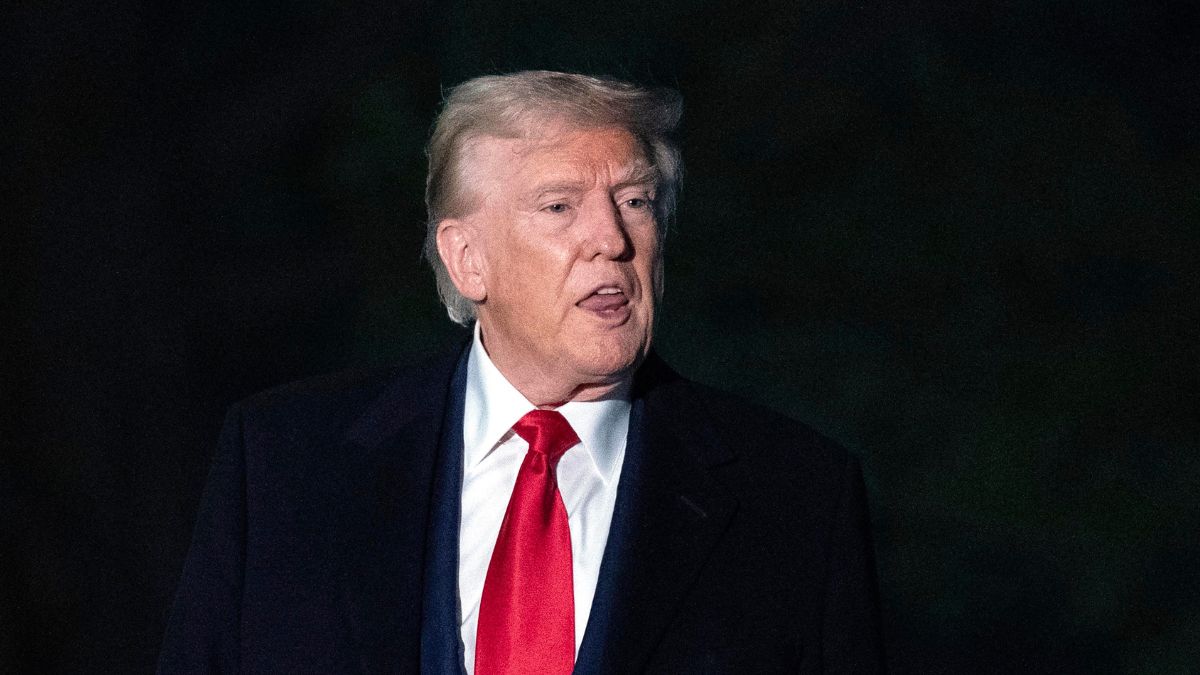Trump asked Israel to drop plans to strike Iran: Report
 US President Donald Trump on the South Lawn of the White House in Washington, Sunday on April 13, 2025 | AP
US President Donald Trump on the South Lawn of the White House in Washington, Sunday on April 13, 2025 | AP
Latest reports from the US show that President Donald Trump has decided to give peace a chance in its confrontation with Iran, asking Israel to abandon planned strikes on Iranian nuclear facilities scheduled for next month.
According to the New York Times, Trump’s decision came after months of internal debate within his administration, weighing the merits of supporting Israel’s military ambitions against pursuing negotiations with Tehran to curb its nuclear programme. It is an example of Trump’s wish to avoid another Middle Eastern conflict, unlike his first term when he withdrew from the Iran nuclear deal.
Israel had developed detailed plans to target Iranian nuclear sites, aiming to delay Tehran’s nuclear weapon capabilities by at least a year. These plans, which required substantial US assistance, included both an extensive bombing campaign and a commando raid on underground facilities. Prime Minister Benjamin Netanyahu requested US backing, believing that it was the perfect opportunity particularly as Iran faces significant military and economic setbacks. Last year, Iran’s ballistic missile attacks on Israel largely failed against US and Israeli defences, while Hezbollah, a key Iranian ally, was crippled by Israeli operations. The fall of Syria’s Bashar al-Assad government further weakened Iran’s regional influence, disrupting weapons smuggling routes.
Trump, however, told Netanyahu earlier this month that the US would not support an attack next month. During Netanyahu’s visit to Washington on April 7, Trump announced the start of indirect talks with Iran, setting a tight deadline for negotiations. Netanyahu, while publicly supportive, insisted that any deal must be backed by the destruction of Iran’s nuclear facilities under US supervision. Israel’s long-standing strategy has included covert operations, such as sabotaging facilities and assassinating scientists, but these have only delayed Iran’s progress, which is now closer than ever to producing multiple nuclear weapons.
Within the Trump administration, opinions were divided. Hawkish figures like General Michael E. Kurilla, head of US Central Command, and Michael Waltz, national security adviser, initially explored supporting Israel’s plans. The US bolstered its Middle East presence, deploying the aircraft carrier Carl Vinson to the Arabian Sea, alongside the Harry S. Truman in the Red Sea, as well as Patriot missile batteries, a THAAD system, and B-2 bombers to Diego Garcia. While these assets were put in place to deal with Iran-backed Houthi militants in Yemen, they could come in handy in case the US wanted to take on Tehran. Trump, in fact, dropped a warning on social media on March 17, accusing Iran of working together with the Houthis, and hinted at the possibility of military action, especially given past tensions, including Iran’s alleged plot to assassinate him during the presidential election campaign.
However, scepticism grew among key aides. Tulsi Gabbard, Director of National Intelligence, warned that a US-backed strike risked escalating into a broader conflict. White House Chief of Staff Susie Wiles, Defence Secretary Pete Hegseth, and Vice President JD Vance, too, echoed similar concerns, with even Waltz doubting Israel’s plan could succeed without significant US involvement. Meanwhile, Iran agreeing to indirect talks tipped the scales towards diplomacy. Vance, in fact, pointed out that a failed negotiation could be used as a justification for an attack later on.
Israel’s first proposal was for commando raids at Iranian nuclear sites, aided by air cover. It was to be modelled on last year’s successful operation in Syria. However, there were multiple logistical challenges, including the need for months of preparation and US air support. Subsequently, Israel moved to a plan for a week-long bombing campaign targeting Iran’s remaining air defences and nuclear sites. But such an attack would have certainly provoked Iranian retaliation, forcing the US to come in Israel’s support.
The Trump administration remains divided on the terms of a potential deal. John Ratcliffe, CIA Director, visited Jerusalem on April 13 to discuss alternatives, including covert operations and stricter sanctions. Brian Hughes, a National Security Council spokesman, affirmed Trump’s commitment to preventing Iran from acquiring nuclear weapons, noting that “all options remain on the table.” For now, Trump’s focus on negotiations marks a pragmatic U-turn, balancing Israel’s security concerns with the risks of a wider war, while keeping military action as a fallback if talks falter.
Middle East